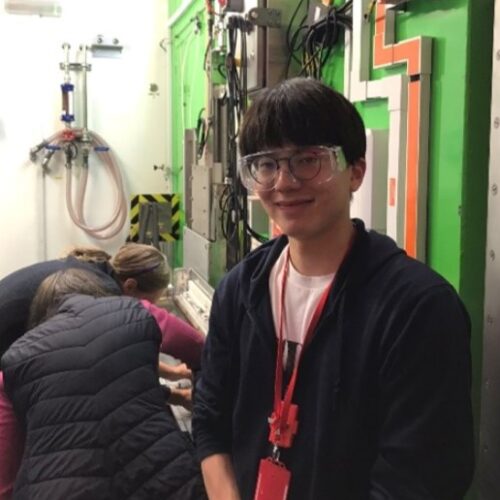Student’s Spotlight – Ratchawit (Leo) Janewithayapun
Leo is a PhD student at Chalmers University working on the characterization and synthesis of melt-processable materials derived from wheat bran. Polysaccharides, such as cellulose or xylan are not melt-processable in their native state. However, with chemical modification, these abundant natural polymers can be transformed into materials exhibiting plastic-like processability and mechanical properties.
In his project, Leo extracts and modifies wheat polysaccharides, and then characterizes their thermomechanical properties. He identifies reaction parameters that result in melt-processable materials and investigates the changes in the materials’ structure and dynamics. In doing so, he aims to identify the mechanisms responsible for the achieved thermoplasticity, so that future works can be directed towards improving these aspects.
He characterizes the materials using small angle neutron scattering (SANS) in both solution and solid state. This allows him to probe the polysaccharides’ conformation during the chemical modifications in solution, and to observe changes in the molecular and nanostructure of the final material as a solid. Certain modifications result in a nano-phase separation within the modified polysaccharide material, which can be clearly detected with SANS. The possibility to differentiate between sections of the polysaccharides by modifying them with deuterated reagents provides another unique tool with which neutron methods can be used to investigate his materials in the future.
For Leo, the most gratifying aspect of his PhD has been having the materials he synthesized analyzed at a large-scale facility. The complexity of trying to link macromolecular properties to smaller structures being probed at the beamline also means that there is always something to ponder about, which he deeply enjoys. Engaging in interesting discussions with experts in the field also make for very enjoyable times.

A challenging part of the project is that various characterization methods across multiple length scales are employed to investigate the materials. Leo has collaborations with experts in neutron scattering, NMR, and polymer processing. Occasionally he feels overwhelmed by the diverse information and perspectives from each research area.
Leo feels that the neutron scattering community is very open and welcoming. He has participated in two SwedNess courses and a Neutron Week, although he is not a PhD student in the SwedNess program. He really enjoyed getting to meet and connect with other students working in the field. As such, he thinks that these courses being open and accessible to the wider PhD student audience is highly beneficial. He suggests that providing support for organizing experimental sessions in these courses could be very helpful to PhD students outside of specialized neutron programs. This would enable them to familiarize themselves with neutron facilities and also acquire valuable experience for submitting their own proposals.